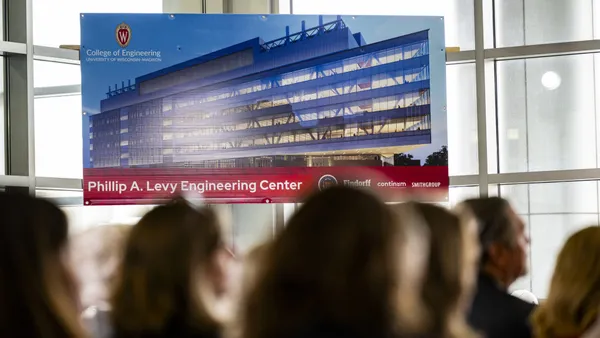The old adage that time is money is particularly true in the hotel business, where property owners and franchisees are always on a tight schedule and under pressure to start serving guests and generating revenue. This means that well-known and new hotel brands alike are turning to nontraditional methods of building — like modular construction — to get the job done.
This month, Hilton announced that Home2 Suites by Hilton, one of its all-suites, extended-stay brands, opened its first hotel built using modular construction in just 16 months and less than a year after modular components arrived at the jobsite.
The 57,000-square-foot property, located north of San Francisco International Airport, is the first hotel built by modular methods to open in the Bay Area and also a first for the Hilton portfolio.
Modular units arrived on site and ready to stack in August, each with an in-room kitchen, separate living and sleeping areas and modular furniture that guests can arrange to their liking during their stay. In addition, using modular construction didn't preclude Hilton and the property franchisee, Sri Krishna Enterprises Inc., from including sustainable features like solar power and a bio-retention pond to add to the four-story wood frame building.
Hotels, hospitals, apartments — any type of building that is unit-based — is a good candidate for modular, proponents say. And the method doesn't cut out more traditional trades, as the typical modular project is designed so that prefabricated units are assembled on top of concrete and steel bases. The prefabrication aspect of modular construction also means that hotel companies can rely on a product that is consistent in quality.
Speed to market
The speed at which construction crews were able to bring the hotel to market is sure to inspire additional modular Home2 Suites by Hilton projects, as well as others within the Hilton family of brands.
And other hotel chains are on board with modular construction as well.
Marriott International began an ambitious program of modular construction a few years ago and recently announced that, in New York City, it would build the tallest modular hotel in the world — a $65 million, 168-room AC Hotel. The new property is slated for a 2020 opening. As of April, the hotel company had opened 31 hotels built using modular construction.
And while established hotel operators like Marriott and Hilton are making the shift toward modular, at least for some of their brands, new hotel companies have made the offsite construction method a core part of their business plans from the beginning.
CitizenM, for instance, builds most of its properties using modular construction, with units manufactured in and shipped from a factory in Poland. In fact, in April, the company broke ground on a new hotel in San Francisco's Union Square, the first of three planned properties in the Bay Area. As part of its portfolio, citizenM also has two projects underway in Los Angeles and completed hotels in Seattle and New York City. The company opened the citizenM Bowery in Manhattan last year.
So, as developers, contractors and companies like Marriott, Hilton and newcomer citizenM reap the benefits of accelerated construction schedules, the industry will see more and more hotels — and other structures — delivered using modular construction.














